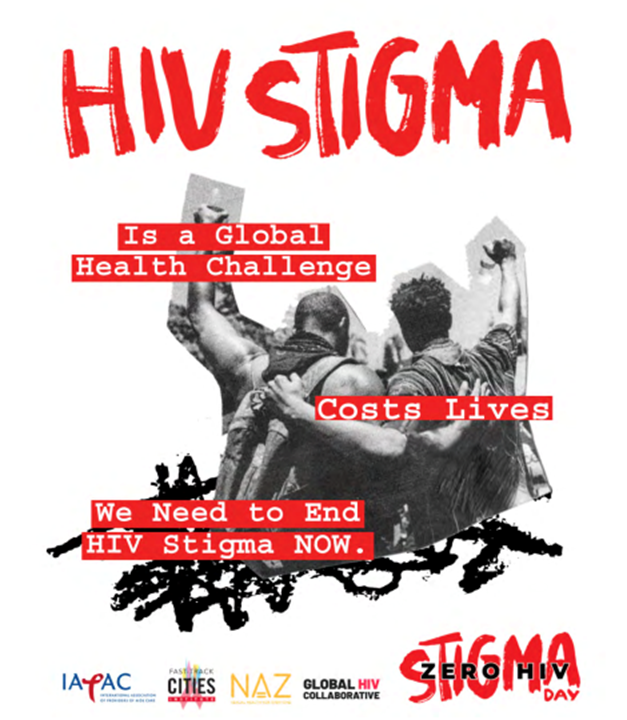Today on July 21st, the International Association of Providers of AIDS Care (IAPAC) partners with NAZ (a UK-based sexual health charity) to observe Zero HIV Stigma Day. Zero HIV Stigma Day honors Prudence Mabele, the first Black South African woman to publicly share her HIV status, by raising awareness about the harm of stigma and addressing strategies to combat it.
HIV is a disease that attacks the body’s immune system and can develop into AIDS (Acquired Immunodeficiency Virus) if left untreated. About 1.2 million people in the U.S. have HIV, and 13 percent of cases go undiagnosed.
HIV stigma refers to negative beliefs or attitudes about people living with or at risk of HIV. Stigma can manifest in the health care setting through neglect, differential treatment, denial of care, breach of consent, or verbal abuse/gossip by healthcare providers.
A 2018 study investigates the mechanisms through which HIV stigma negatively affects the outcomes of HIV patients. Someone with HIV who perceives a high level of stigma from the community might eventually internalize the stigma by accepting negative characterizations, labels, and perceptions and apply them to themselves. Internalized stigma leads this person to anticipate stigma from their community and may drive them to act in ways that are harmful to their treatment process, such as avoiding testing or treatment and not adhering to medication.
Creating a stigma-free environment allows patients to be empowered, involved in their healthcare decisions, and use other forms of support outside of health care. Health care providers and policymakers must combat stigma at the individual, environmental, and policy levels to improve patient outcomes.
Zero HIV Stigma Day’s website provides a toolkit for both education and public awareness. Take a look!
Image taken from the Zero HIV Stigma Day toolkit.

